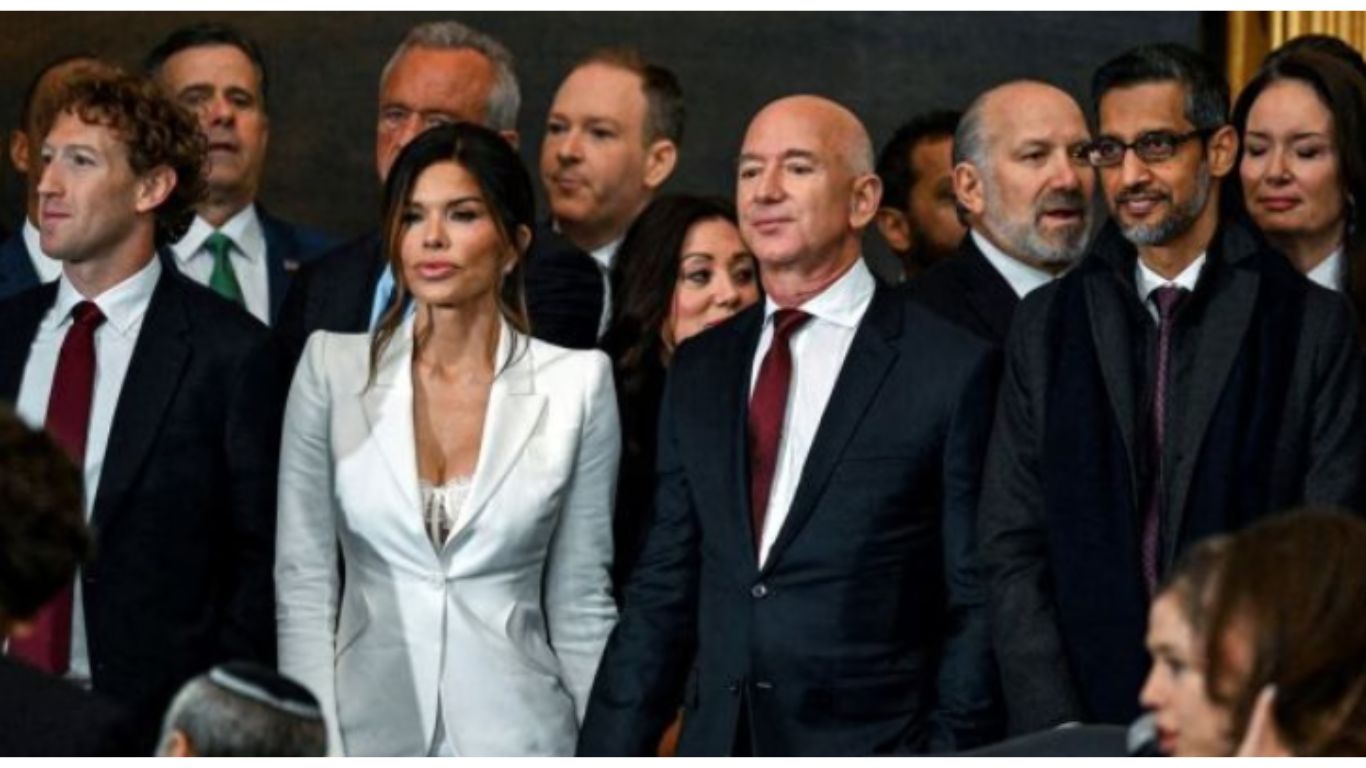The EU’s efforts, which last year adopted the historic AI Act, are not quite in line with Trump’s lax attitude toward AI legislation.
Large tech firms like Google and Meta, along with other industry participants like Microsoft-backed OpenAI and Amazon-backed Anthropic, are strongly supporting US President Donald Trump’s lax regulatory approach to AI.
These tech firms have mostly argued in their individual contributions to the White House’s AI Action Plan that loosening regulations pertaining to the development of large language models (LLMs) and other AI tools is essential to maintaining the nation’s competitive advantage over China. Silicon Valley was rocked a few months ago by a Chinese AI firm called DeepSeek, which claimed to have developed a state-of-the-art AI model at a fraction of the price of its American competitors.
President Trump’s actions since taking office in January have indicated a significant change in emphasis from mitigating AI concerns like deepfakes, hallucinations, and job displacement to accelerating AI development at all costs.
Additionally, he rescinded the AI executive order issued by former US President Joe Biden, which included some guidelines for potent AI models. US Vice President JD Vance stated at the AI Action Summit last month in Paris that “hand-wringing about safety is not going to win the AI future.”
Trump’s AI Action Plan proposal
According to an AFP article, the Trump administration requested input from business executives on an AI action plan that is anticipated to be developed in the upcoming summer months, highlighting the importance of the US retaining its status as the “undeniable leader in AI technology.”
According to reports, OpenAI described DeepSeek’s AI models as “state-subsidized” and “state-controlled” in its policy proposal, posing security and privacy threats. It advocated safeguarding AI research “from layers of laws and bureaucracy that would prevent us from realizing them, as well as from autocratic powers that would take away people’s freedoms.”
Additionally, OpenAI contended that the fair use clause should permit it to use copyrighted material to train its AI models. The creator of ChatGPT stated, “America loses, as does the success of democratic AI, without fair use access to copyrighted material.”
“Open source models are essential for the US to win the AI race against China and ensure American AI dominance,” according to Meta’s submission. Google’s answer was to invest in infrastructure to meet AI’s high energy needs. Additionally, it argued against US state-by-state AI restrictions.
However, a group of well-known musicians and Hollywood stars, including Cynthia Erivo and Ben Stiller, rejected the fair use defense offered by tech companies to support AI training on copyrighted content.
The opposite side of the pond
The European Union (EU), which passed the historic AI Act in 2024, is working to control AI, and Trump’s lax attitude to regulation is not exactly in line with their goals.
According to sources, EU authorities are now shifting their messaging away from safety and towards innovation and investment. The bloc still seems dedicated to imposing stringent rules on large tech firms, though.
The European Commission most recently declared two significant antitrust enforcement rulings against Apple and Google. According to the EU executive body’s first conclusions, Alphabet, the parent firm of Google, most likely broke the Digital Markets Act (DMA).
Google may face fines from the EU equal to 10% of its yearly global earnings when the conclusions are finalized.
Furthermore, the Commission outlined Apple’s obligations under the DMA, particularly the section of the competition law that mandates designated “gatekeepers” to facilitate easier and more efficient interoperability of their goods with those of third parties.
Teresa Ribera, the EU’s competition commissioner, was quoted by Fortune as stating, “The two preliminary findings we adopt today aim to ensure that Alphabet abides by EU rules when it comes to two services widely used by businesses and consumers across the EU, Google Search and Android phones.”
“Today’s decisions wrap us in red tape, slowing down Apple’s ability to innovate for users in Europe and forcing us to give away our new features for free to companies that don’t have to play by the same rules,” expressed Apple in response. Both our products and our European customers suffer as a result. On behalf of our users, we will keep collaborating with the European Commission to help them comprehend our concerns.
Additionally, Google contended that the preliminary conclusions of the Commission would “make it harder for people to find what they are looking for and reduce traffic to European businesses.”










